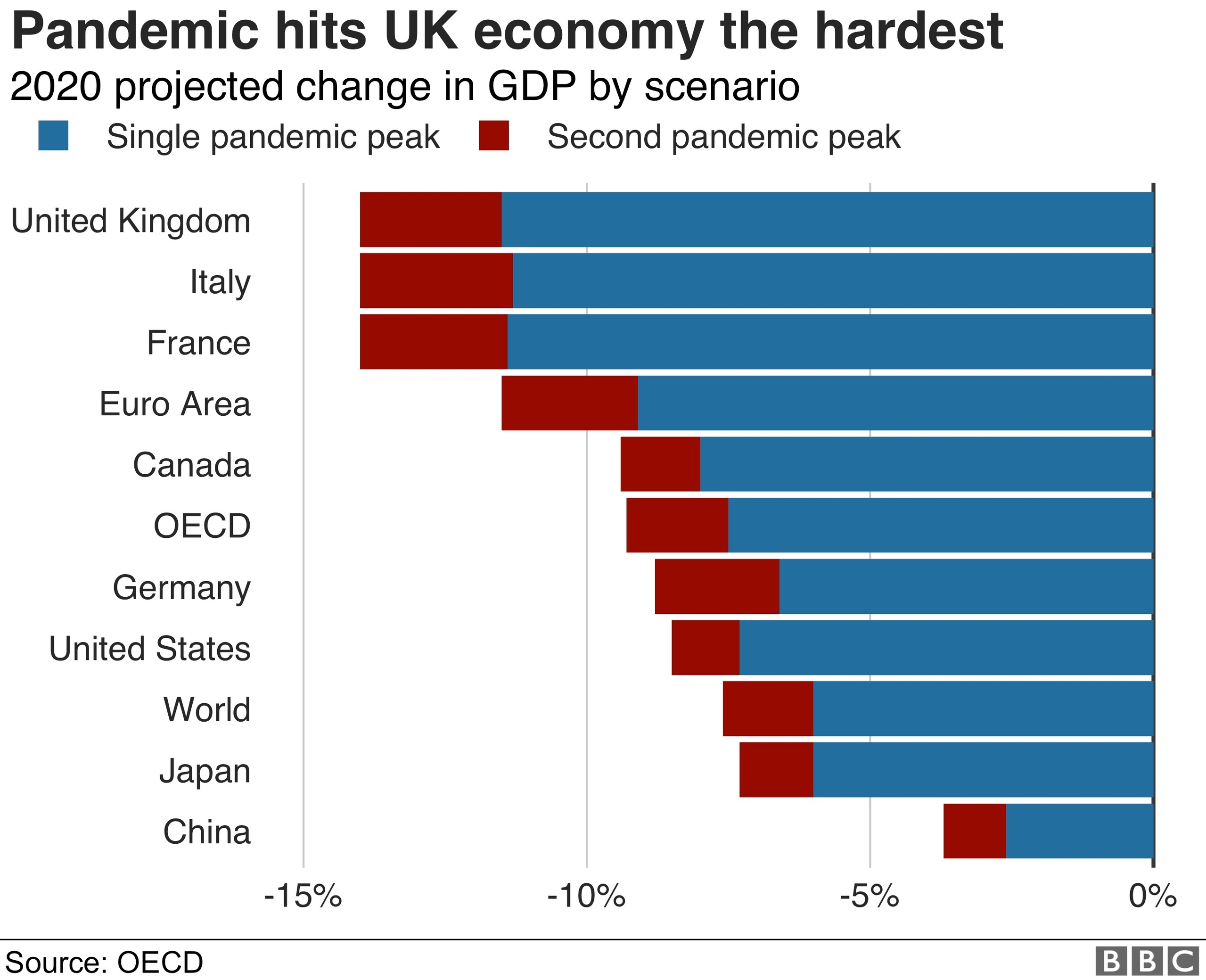
The UK economy has been significantly impacted by the COVID-19 pandemic. According to the Office for National Statistics (ONS), the UK’s Gross Domestic Product (GDP), which is the value of everything produced in the economy, was 9.9% down in 2020 compared with 2019. The pandemic has had a severe impact on the UK economy, with strict restrictions imposed for a lot of the year as a result of coronavirus. The UK economy is also reliant on consumer spending on things like hotels, restaurants, and leisure activities, which have been badly hit by lockdowns .
However, Chancellor Rishi Sunak says the GDP slump is “comparable to other countries” and that the UK’s performance is very much in line and comparable to other countries and, in fact, it may be on a margin better than places like Canada, Germany, Italy, and Spain . The ONS explains that the UK calculates GDP in a different way to pretty much everybody else. The tricky part is how you work out the output of public services such as healthcare or education. If you want to know the output of a normal business, you just look at how much it has made from selling its goods or services. That doesn’t work as well with the public sector, so the ONS bases its figure on measures such as how many people have seen a GP, how many operations have taken place, and the number of pupils receiving education. Things like the closure of schools and the cancellation of non-urgent operations meant that the output of public services took a big hit in the pandemic. Other countries tend to base their figures either on how much money has been spent on public services or how many hours have been worked by staff delivering them. As the amount of money spent has not fallen, that method would show less of a drop in their output. That is also how the ONS works out GDP in nominal or cash terms .
The Organisation for Economic Co-operation and Development (OECD) has warned that the UK is likely to be the hardest hit by COVID-19 among major economies. Britain’s economy is likely to slump by 11.5% in
